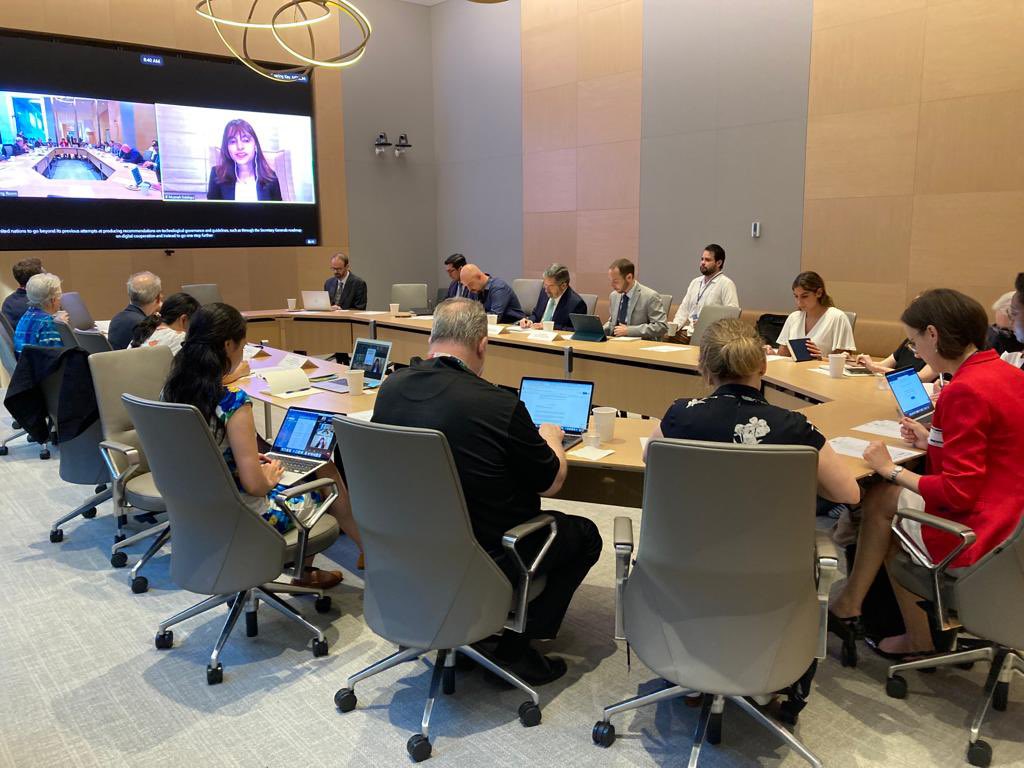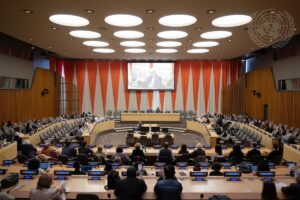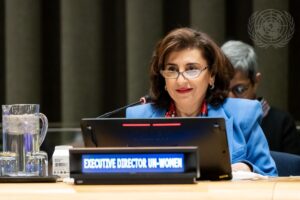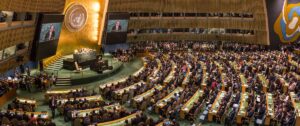Background
A key proposal outlined by the Secretary-General in the Our Common Agenda report calls for the development of a Global Digital Compact, which seeks to outline “shared principles for an open, free and secure digital future for all.” This innovative idea seeks to transform global governance approaches in all aspects of digital life, ranging from improving access to infrastructure, to promoting human rights online, to regulating artificial intelligence.
Technological innovation has been a source of significant advancement, serving to amplify human intent and capabilities. Yet, like any tool, it can be deployed productively or destructively. Forms of social bias and inequity, for example, are often embedded in the design or application of emerging technologies, subtly influencing their ultimate social impact. Decisions related to use and distribution are often left to a privileged few. Technological products are being developed at a pace exceeding the capacity of even the most qualified legislatures to properly assess. An honest examination of the presumptions and norms underlying the creation and use of digital tools is therefore critical.
About the Dialogue
This session, the third in a series of monthly dialogues related to Our Common Agenda, will provide an opportunity for participants to explore how best to answer the call of the Secretary-General to “put humanity at the centre of technology.” It will offer a space to assess various facets of the proposed Global Digital Compact. And it will serve as a channel for perspectives on core principles of digital governance to feed directly into the official preparatory process introduced recently by the Office of the Secretary-General’s Envoy on Technology.
Guiding questions:
- What key principles might governments, the private sector, and civil society agree on as a foundation for global digital cooperation?
- What regulatory changes are needed to shift away from business models that threaten public health and safety?
- How might a global code of conduct, aimed at promoting integrity in public information, address digital risks such as data misuse, misinformation, and cyber-crime?
Speakers:
- H.E. Mr. Juan Ramón de la Fuente Ramírez, Ambassador Extraordinary and Plenipotentiary Permanent Representative of Mexico to the United Nations
- Ms. Yu Ping Chan, Senior Programme Officer, Office of the Secretary-General’s Envoy on Technology
- Mr. Iain Levine, Senior Human Rights Advisor, Meta
- Muznah Siddiqui, Research Consultant, Global Governance, Justice and Security Program, Stimson Center




